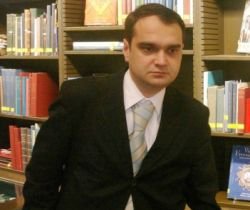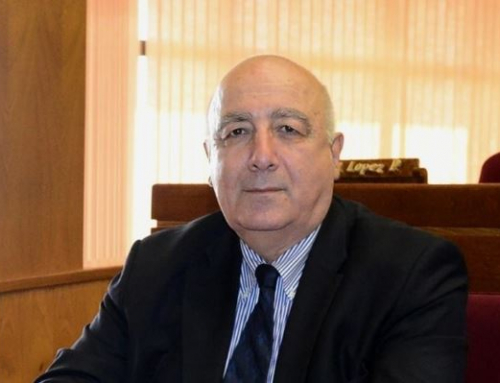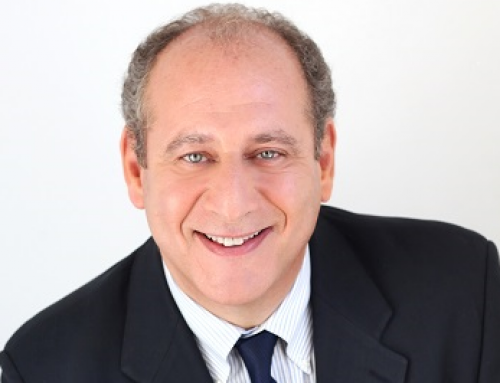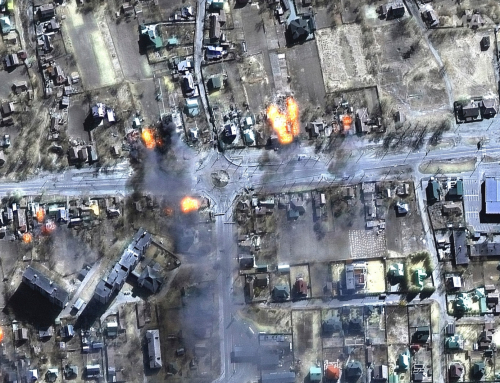Part 1: Russia and Georgia
One cannot Play at Giveaway
Since the Rose Revolution and the assumption of political power by Mikhail Saakashvili the scope of influence of the Russian Federation over Georgia has been weakened to that extent that the Russian Federation has recognized the necessity to seek new leverage over Georgia as it strives towards becoming a member of the Western sphere. Therefore, the Russian Federation has embarked on the application of some traditionally used themes – ethnic, religious and linguistic minorities – to curb Georgia’s western aspirations. Among the underlined themes the major emphasis has been put on the following considerations:
Trade off over the status of Abkhazia and South Ossetia;
Promotion of the process of the regional self-consciousness among the population of Samegrelo and in its bordering districts of Abkhazia;
Resort to the contradictions as developed between Georgian Orthodox Church and Apostolic Church of Armenia;
Self-rule by ethnic Armenian communities in the Samtskhe-Javakheti region and ethnic Azerbaijanian communities in the Kvemo Kartli region.
The explosives planted in Abkhazia and South Ossetia during the imperial rule of Russians had come into motion upon the creation of the Soviet Socialist Republic of Georgia (SSRG) in which the mentioned territories received the status of self-governing entities within the framework of SSRG. Therefore, for Bolsheviks in the beginning of the 20th century, it could not have been obtrusive to control a small republic as Georgia by granting autonomous status to two territories bordering Russia out of four populated by ethnic minorities.
“The sword of Damocles” had been legally created with its intentional long lasting impact. Time after time, Abkhazian and South Ossetian “Springs” had been set into motion especially in the early attempts of break up and western move during the presidencies of Zviad Gamsakhurdia and Eduard Shevardnadze in the 90s of the last century. Georgia had been punished in line with switching on the trade off mechanism of Russia with Georgia – “giving up its pro western political orientation for the retention of its territories”.
Such a trade off did not entail any benefits for Georgia as far as it could not guarantee its territorial integrity as well as the long turn solution of the persisting territorial problem. On the other hand, the Russian Federation was not able to produce a “success story” by creating a satellite state with success in development and higher defensive capabilities impenetrable and immune to both internal and external conflicts. On the contrary, the Russian Federation has turned out to be keen in the demonstration of stiff control, stagnation and permanent risks destined to the countries falling under its sphere of influence.
It has to be noted that President Shevardnadze was quite skillful in negotiations with Russians and had an ability to stretch out the trade off process and not to oppose his Northern neighbor directly despite some conceded issues. However, Shevardnadze managed to make the Russians gradually remove their military installations from Georgia. In contrast to Shevardnadze, the young President of Georgia Mr Saakashvili has decided to force the process, to spot trading with Russians and thus send a clear message that he is not about to play for giveaway.
The first “forcible” attempt had taken place shortly after his inauguration which ended in a draw. Unfortunately, the lesson had not been learned, and Russia having capacities to force the enemy “everywhere and in everything” had managed to drag the Georgian side into the game with a predetermined outcome. The authorities of Georgia, enjoying the total ownership over the process unchallengeable from both inside the ruling political elite and external political forces notably political opposition, had become so entertained by the achieved success in state reforming as well as in curbing political opposition, had entirely embarked on the retention of the lost territories despite the warnings from its allies as well as strong political competitors not to undertake preemptive military measures. Moreover, President Saakashvili was in greater need of a quick victory which would enable him to restore the degraded public confidence being undermined as a result of curbing of a peaceful demonstration on 7th of November, 2007.
Naturally, President Saakashvili’s intentions would have been known to Russians and therefore, most probably Russians had helped the Georgian President to make the “needed” judgments. It can be speculated that the decisions made by Georgian authorities rested on the following assumptions: a) superiority of Georgian military establishment over Russian military regiments stationed in South Ossetia as well as Tskhinvali military formations in the number of combatants as well as military equipment; b) a deeply rooted perception among the Georgian ruling political elite that Russians will oppose Georgians in the same sluggish manner as they did in Abkhazia in the early 1990s.
The August war of 2008 has helped to clear up the mess and make things certain – Abkhazia and South Ossetia were recognized by the Russian Federation as independent states, the whole territorial map of Georgia was revised, the stake at trade-off was heightened, Georgia emerged with new realities and the Russian Federation opted for strengthening the new leverages to be eventually used as the utterly important mechanism upholding its foreign policy objectives.
The case of Megrelians
There has been a long term attempt of separation of Georgians for some of whom Megrelian language is the language of life. However, recent attempt took place soon after the Georgian-Abkhazian conflict. Effort has been promptly applied by the de facto authorities of Abkhazia to intensify the process of division between the Georgian and Megrelian spoken population soon after the commencement of the process of spontaneous return of IDPs to the eastern part of Abkhazia.
However, despite the publication of Megrelian language newspaper in Gali, promotion of opening of radio program in Megrelian language as well as agitation in favor of the promotion of regional separation among the Megrelian spoken population, the process aiming at the break off the Megrelian spoken population from the major ethnic Georgian group had been quite sluggish and unsuccessful enough to achieve the stated results. Moreover, counteraction taken by the authorities of Georgia has proved very effective as well as surprising for the de facto authorities of Abkhazia.
The attempts on the part of the separatist authorities intending the promotion of Megrelian language in Abkhasia and consequently creation of a robust network of providers of a new separatist movement for the whole Megrelian language area in Georgia etc have been met with more robust and well organized policy conducted by the Georgian authorities implying the development and further popularization of Megrelian language – Tbilisi has become the venue of popularization of Megrelian folklore, life style and culture. Some activities have also been realized intending the promotion of such projects resulting, among other things, in the translation of books and literature into Megrelian language. It comes natural that such policy being realized within the wider national scale has earned additional credits – it was emotionally closer to Megrelians, quite easy to understand and perceive and consequently very effective.
The second attempt at separation took place during the occupation of the territories of Samegrelo by Russian military in August 2008 when Russian passports were distributed among the local Megrelians. Moreover, Russian soldiers tried to treat Megrelians in a more or less polite way as compared to the harsh conduct they displayed towards the population of Shida Kartli.
It is not possible to voluntarily tear the father away from his own son simply because the child speaks with a mounting number of contemporary words. This is how the Megrelians perceive their own contribution to the creation of Georgian ethos and language.
Attempts to capitalize on the persisting contradictions between the Georgian Orthodox Church and the Armenian Apostolic Church
Worsening of Armenian-Georgian inter church relationships entered a new historical phase since both countries declared independence. While the theological differences did not create any obstacles hampering the relationships between the two counties being united under USSR the contradictions over the theological cause had intensified soon after the dissolution of the Soviet Union and turned into the confrontation. In fact, theological disagreement between the two sides goes hand in hand with the debates over church ownership.
The Armenian Church is demanding the return of non functional Armenian churches located in Georgia being closed and demolished by the Bolsheviks while the Georgians are rejecting Armenians’ demand and proposing a counter demand implying the return of Orthodox churches to the territory of Armenia. At the same time both churches are demanding the granting of official status to the respective territories of responsibility both in Armenia and Georgia. It has to be noted that there have been several attempts to reach an agreement between two churches; however, no attempt ended with a positive outcome.
The confrontation became so acute as well as the methods of confrontation so diverse that the issue of Armenian Church property has acquired a new politically sensitive dimension and consequently made a top story in Armenia along with wider public scrutiny over the violation of ethnic Armenians’ specific rights in the Javakheti region of Georgia. The issue has also become one of the most discussed problems among Armenian Diasporas in many countries.
Within the framework of “spiritual order” of Armenians intending the timely regaining of Armenian Churches in Georgia, a visit by the spiritual leader of Armenians, the Patriarch of All Armenians Garegin II took place in Georgia in June 2011. The visit was postponed several times because of differences between the two Churches over the resolution of the Armenian Church property issue. Therefore, one of the main reasons why the Armenian Patriarch Garegin II stressed that the visit should go ahead could have been the readiness on the part of his counterpart – Georgian authorities – to partly satisfy the demand of the Armenian Church regarding the granting of the respective status in Georgia. Presumably the authorities of Georgia due to different considerations not necessarily related to the interests of the Armenian Church were considering the possibility of the adoption of new legislative changes to the existing Civic Code setting the new procedures for the registration of religious unions according to which the later could have obtained the long awaited rights for registration.
However, if we approach the stated issue not from the standpoint of religious preferences but from gaining political benefit to be possibly obtained though the satisfaction of the interests of believers, than we can speculate that timing of the visit of Armenian Patriarch has been chosen correctly. Interestingly, adoption of the amendments to the Civic Code Georgia allowing religious groups to obtain the status of legal entity under public law has coincided with the creation of the Department of Muslims in Georgia; moreover, the new legislative changes has made it possible for most mosques in Georgia to be legally registered under the ownership of the mentioned Department.
In view of the above described tendency the Armenian Church has been blamed for lobbying the new legislative changes as well as pronounced guilty for deliberately hurting the interests of the Georgian Orthodox Church. As a result, both Churches have emerged at the edge of eruption of the conflict bearing the inter-ethnic signs which could be utterly devastating for both counties.
The status of religious minorities; the West and minorities:
It can be argued that the fact of adoption of the mentioned legislative changes is of utmost important for a country trying to position itself as a tolerant and democratic state. Therefore, the approach on which the Georgian authorities have embarked seems quite promising as a first step towards this direction. Moreover, taken into account the emerging risks regarding the mounting number of new challenges faced by the Caucasus region, it can be argued that harmonization of minorities’ rights can be considered one of the top priorities of the Georgian state. Moreover, the readiness on the part of state authorities implying the harmonization of local legislation to the best European practice will be understood as a positive move towards the protection of minorities’ rights which in its turn facilitate the enhancement of trust among minority communities towards the state.
In this light the democratic nature of the amendments allowed the authorities to take a step forward and demonstrate to the world the effort of Georgian authorities directed towards the normalization and stabilization of minority issues. In a strategic sense, the message from Western leaders can be understood such that in case of repeated breach of the territorial integrity of Georgia, protection of minorities as well a promotion of their rights cannot be brought as an argument justifying intervention. In has to be noted that Western countries are still delivering support to quite expensive projects intending the integration of minorities into Georgian society as well as addressing the issues regarding the protection of their rights.
Amendments to the Civil Code of Georgia adopted on July, 2011
Adoption of the law most probably has been based on the following considerations: one of the major reasons of a geopolitical nature is directly related to the tendencies described above. Another possible reason could be hidden in the attempt on the part of Georgian authorities to curb Iran’s expansionist aspiration to influence Muslim population of 300 000 residing in Georgia.
The “smooth” transition of uncontrolled Muslim communities to centralized management has allowed the perfection of a control mechanism from the side of state bodies and consequently has decreased the risk of an uncontrolled situation arising in this sphere. Therefore, taking the last assertion into account, it appears that the adoption of new legislation was in fact morally supportive to the Christian communities inside the country awaiting new steps to be made by the state authorities.
However, it has to be noted that the adoption of the new amendments to the Civic Code of Georgia does not in fact resolve the problem of property ownership – handover – as far as the legislative nonsense allows the organizations to register, to be called religious and to register as the subject of public law; however, they do not fall under the regulation of the Public Law of Georgia.
Religious organizations, that have undergone the registration process according to the new legislative changes can enjoy the rights set and stipulated by the law of Georgia on Civic Organizations being practiced by the above-mentioned organizations even before the adoption of the amendments.
It needs to be reiterated that the new law does not legally demand the state authorities to hand over the property to the registered entities. Notwithstanding the described assertions, the major party opposing the adoption of new legislation was the Georgian Orthodox Church which has expressed its suspicions about the possible restrictions of its own rights and therefore provoked (which could not have been difficult for authorities to anticipate) a mass rally against the adoption of the new regulations. Within two days the Church managed to mobilize over 50 000 protesters. Over 50 cases of hate speech have been revealed towards religious and ethnic minorities; half of them have been aired by prominent public figures. Public protest forced the political parties to express their position; the very nature of their statements not being difficult to anticipate. Most political groups have supported the position of the Georgian Orthodox Church. The most liberally minded parties in Georgia (e.g. Free Democrats and Republicans) have embarked on a general analysis of the situation and a description of the state’s role in the process, thus they have not directly supported the views of the Church.
The underlined situation once again enabled the ruling political elite to demonstrate to its Western partners that the ruling party is the only liberal political force in the country having a capacity to carry out democratic reforms. Moreover, by such a move the ruling political elite has successfully managed to identify and demonstrate to the general public the attitudes and perceptions of different political establishments. The other important asset authorities have managed to gain was strengthening its image as the sole guarantor of the protection of minorities’ rights as well as inter-ethnic stability in the country.
Ethnic minorities have been shocked by these developments, taken into consideration their excellent memory of the commencement of military conflicts in Abkhazia and South Ossetia in the 1990s, persecution of people due to their ethnic background, as well as the deep perception of the results such military conflicts entail. Therefore, it can be argued that the reputation of the ruling political elite among the ethnic minority groups residing in the respective regions of the country has been considerably strengthened. Moreover, it has to be noted that the state authorities have also managed to create such a legitimate environment before the parliamentary elections in 2012, according to which it would not be surprising if voters representing ethnic minority groups would demonstrate a higher degree of electoral activity and consequently support (with the highest possible percentage of votes) the ruling political party “United National Movement”. However, it is another story what will actually happen, the outcome of which is utterly difficult to anticipate. In this regard, the role of Georgian civil society as well as international organizations conducting election observation programs, as well as the degree of activities of the political subjects taking part in the elections, will be crucial.
To be continued…
Arnold Stepanian is chairman of the movement Multinational Georgia.






Leave A Comment
You must be logged in to post a comment.